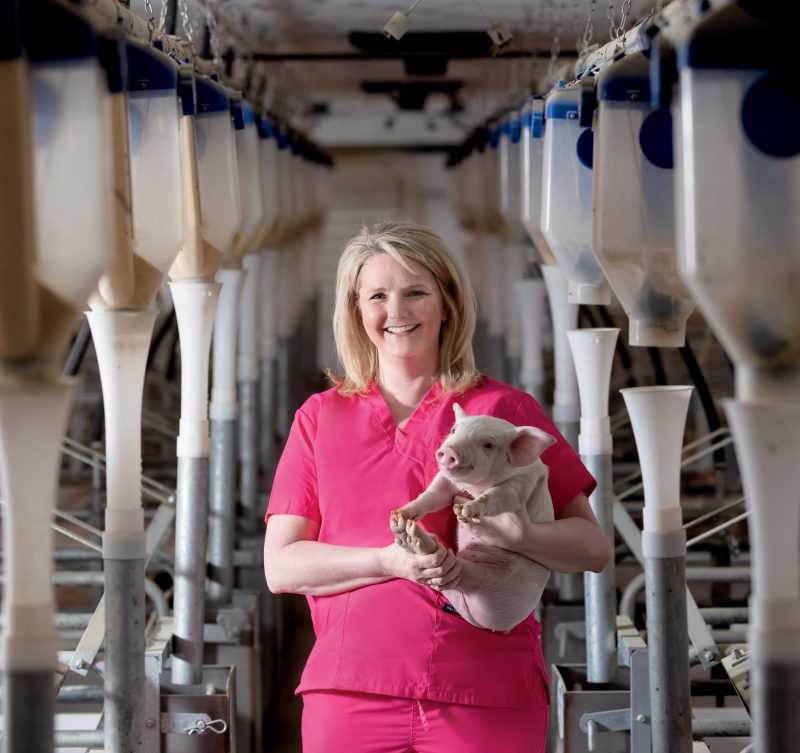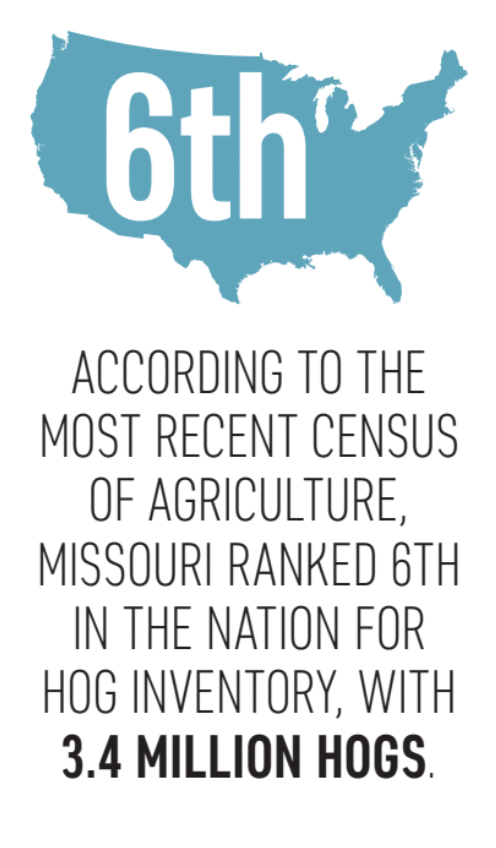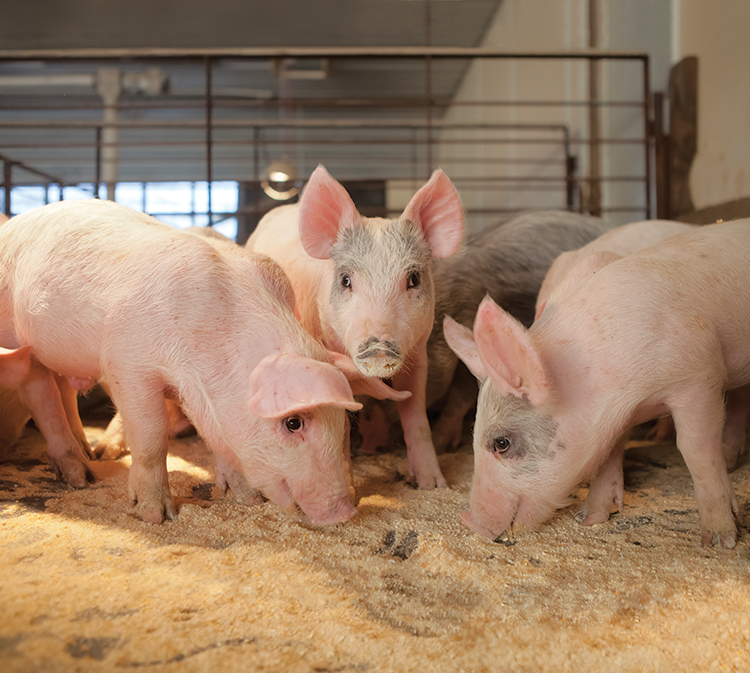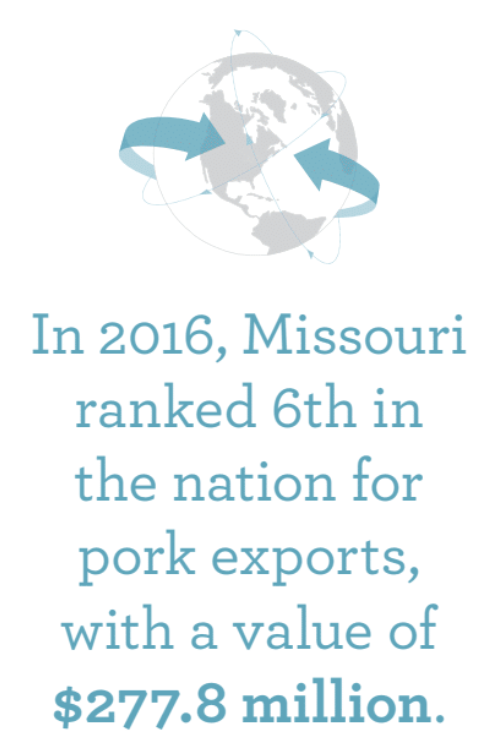Home > Missouri > Missouri Farm to Table > Why Missouri Farmers Make Animal Health a Priority
Why Missouri Farmers Make Animal Health a Priority

The hogs on Chris Chinn’s multigenerational family farm can’t be claimed as dependents on the family health insurance plan, so keeping them healthy is a top priority. Chris and her family, like so many Missouri farmers, are committed to the welfare of their animals and work with a team of professionals to carry out a comprehensive plan to ensure their good health.
READ MORE: What is a Missouri Farm?
“Prevention is the key to maintaining our herd’s health,” says Chinn, who, with her husband Kevin and his family, operates a farrow-to-finish hog operation in Shelby County. “We take a proactive approach of examining ways to address issues before they become problems. Collaborating with a nutritionist and a veterinarian is vitally important to devising and executing a health care plan.”
Chinn, who also serves as the Missouri Director of Agriculture, explains how that team approach benefits their animals.
“We work closely with our nutritionist to address dietary issues and design a plan for optimal health of our animals,” she says. It’s a big job that has resulted in 10 different diets that correlate to the different weight ranges of the hogs.

“Our veterinarian also provides valuable guidance on protocols for best management practices,” says Chinn of their long-time veterinary partner. “He visits the farm weekly for preventative animal checks, much like well checkups for children, so that he has a good feel for our animals and can help identify potential problems. It’s a learning and teaching partnership that helps us better understand our herd’s health and allows us to adjust our practices accordingly.”
One of the adjustments recommended to the Chinns was to move their hogs inside to reduce the likelihood of attacks by predators and disease from wildlife and birds. Eliminating risks, Chinn says, means less need for treatment, specifically fewer medications administered to the animals.
“We want to protect our animals and keep them safe and healthy, and while antibiotics are one of the tools we have in our toolbox to do that, we want to only use them when necessary,” Chinn says. “When needed, we use medications judiciously under the guidance of our herd veterinarian.”
 Raising a Healthy Herd of Farm Animals
Raising a Healthy Herd of Farm Animals
The decisions farmers make to protect their animals from disease and weather require significant investments. Hog barns are equipped with state-of-the-art computer-controlled climate systems, fans, and automatic feeders and waterers. These tools are optimal for ensuring animal health.
READ MORE: An Education in Raising Missouri Show Pigs
“Hogs can’t sweat, so we have to keep them cool,” Chinn says. “We have cool cells and srippers in the barns when it’s hot, much like air conditioning in our homes, and we also have heat in the winter. Newborn pigs can’t regulate their body temperature, so having the optimal environment gets them off to the best start. Heat lamps allow us to provide added warmth to the newborn pigs.”
“On our farm, the animals eat before we do.”

Independent farrowing (birthing) stalls are another investment for each sow (female hog) and her piglets that pays dividends. “Hogs can be very aggressive and uncoordinated, so independent housing systems allow us to protect the litter from injury,” Chinn says. “They also allow us to monitor daily feed intake so that we know if our animals are overeating or undereating.”
While advancements in technology, climate control and animal science help improve herd health, animal welfare is most closely tied to the commitment of the farmer.
“On our farm, the animals eat before we do,” Chinn says. “We are up early to feed and once the animals are taken care of we eat our breakfast. On Christmas morning, our children don’t open presents until the animals are fed. We want our animals to be comfortable, and we take care of them in a respectful way. The welfare of animals is a top priority for farmers and ranchers.”



